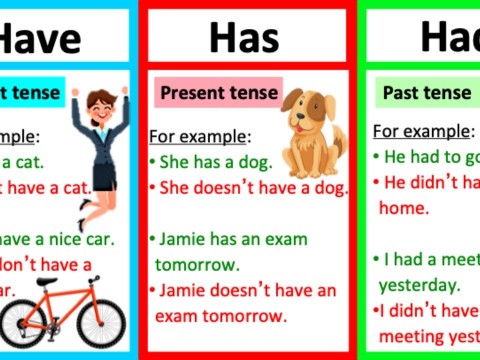重要
have
🇬🇧/hæv/ 🇺🇸/həv/📚 8 5中考高考You use the form had with a past participle to form the past perfect tense of verbs. (had)后接过去分词,构成过去完成时态
verb [助动词]拥有;有(想法、主意、观点等);显示出,带有(性质、特征);做,进行(活动);携带;吃,喝,抽(烟);患病,得病;得到,收到;经历,经受;担负(责任);导致,产生(影响);生,生育;包括;使保持,使处于;明白,懂得;抓住,紧握;与(某人)性交;组织,举办;<非正式>欺骗;让,叫,命令;(尤指短期在自己家中)照料,照看;已经,曾经(与过去分词连用构成完成时)
You use the forms have and has with a past participle to form the present perfect tense of verbs.
后接过去分词,构成现在完成时态
noun [专属名词]<非正式>有钱人(the haves);<英,非正式>诈骗
Times have changed and so have I.
时代变了,我也变了。
noun [专属名词]【名】 (Have)(德)哈弗,(芬)哈韦(人名)
Profits have stagnated.
利润原地踏步。
| 过去式 | 过去分词 | 现在分词 |
|---|---|---|
| had | had | having |
单词造句:
- 网友用“Have”造句精选
- Alex has already gone. 亚历克斯已经走了。
- What have you found so far? 迄今为止,你发现了什么?
- Frankie hasn't been feeling well for a long time. 弗朗姬感觉不舒服已经很长一段时间了。
- When I met her, she had just returned from a job interview. 我遇到她时,她刚刚从一次求职面试回来。
- You haven't sent her away, have you? 你还没有把她送走,是吗?
- "You'd never seen the Marilyn Monroe film?"—"No I hadn't." “你从来没看过玛丽莲•梦露的电影吗?”—“是的,从来没有。”
- I went out and had a walk around. 我出了门在附近散了散步。
- We had a laugh over that one. 我们对此大笑。
